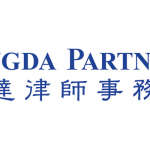Early 2023 held a sweet spot for cross-border M&A activity in Greece, unmuting all those opportunities that had joined a waitlist during the Covid-19 pandemic and have been looking for the right time to be deployed and lead into new business models and scaling deal-making strategies.
In fact, the current market status suggests that deal-makers rebound with a strong intention to radically shift the transactional landscape by throwing into the mix highly sophisticated implementation plans and solid completion strategies, opening up to new industry sectors and playing up to transformational deals that will most definitely impact their core operations and medium-term strategic goals.
In February, Drakopoulos advised the shareholders of Orphee Beinoglou SA, Greece’s largest logistics group with subsidiaries throughout the Balkans, on the sale of their majority stake in Orphee Beinoglou SA to HIG Capital, a leading global alternative asset investment firm. The acquisition has been reported in the Greek market as a landmark transaction in the logistics sector, incorporating all the legal and technical traits of the new generation of post-crisis deals and confirming the appetite of new large global players to enter Greece.
Another noteworthy transaction preceded in January in the context of which Drakopoulos advised Ricardo plc, a British publicly listed company, on the acquisition of 93% of the share capital of E3-Modelling Energy-Economy-Environment, a company engaged in the research studies of mathematical models in the fields of energy, economy and environment. As subsequently announced by Ricardo’s chief executive, Ricardo’s acquisition of E3-Modelling has been fully aligned with their ambition to become a global leader in strategy and engineering consultancy for environmental and energy-transition solutions.
Both transactions confirm the current trends in the M&A sector and set out the new elements that are taken into consideration prior to the implementation of each project, namely the intention to (i) expand to new non-traditional sectors, in addition to the usual longstanding ones, such as real estate, tourism and hospitality, (ii) explore new corporate forms or vehicles to penetrate the market and (iii) design well-structured completion strategies that will leverage all previously acquired knowledge and ensure enhanced protection to the investing parties. And yet, the weighted average of all said factors differs depending on the type and ambition of the deal-maker each time, being either a global player pursuing a mega-deal or a private-equity (PE) investor going after small and medium-sized businesses.
New era players are keener on delving into different and non-conventional industry sectors and scanning new techniques to claim position. Logistics, digital technologies and fintech, energy, innovation and ESG are among top targets for investors that wish to capitalise on operational and financial flexibility and agility rather than scale and size. Luckily enough, almost all market entry options are available for deal-makers that aim at rotating their M&A approach to filter in. In addition to the traditional M&A structures, investors may opt for a different transformation strategy form involving leverage buy-outs, spin-offs, carve-outs, demergers or other divestitures.
Current investors profile connects PE investors and financial sponsors that are eager to utilise the funds that have been stalemated over the last years with large global players and well-capitalised companies that wish to consolidate their activities and optimise their core businesses. What all investors have in common is a higher – compared to pre-pandemic players – level of knowledge, expertise and sophistication when it comes to negotiating the structure, terms and timeframe of each transaction and implementing a risk-based approach in their dealings to minimise exposure. Deal-makers need to be extremely cautious as regards deal certainty, valuations and risk assessment, as they are dealing with sellers that are aware of the former’s financial wherewithal and, hence, feel that they have the space to claim higher valuations for their assets. In order to make sure that their best interests are safeguarded and all collateral risks are minimised, investors – acting most of the times in their capacity as buyers or strategic partners – avail themselves of all available protection and financial engineering mechanisms that will secure them a fair trade. Said mechanisms usually include enhanced due diligence processes, well-defined conditions precedent triggering penalties and restricted walk-away rights, structured consideration clauses involving deferred payments or earn-outs, as well as specific indemnities, representations and warranties.
Zooming out from the transaction specifics and zeroing in on the actual market conditions in Greece, the country gives the impression that it has successfully undertaken significant efforts to achieve the resilience and stability required to become an attractive and sustainable investment destination. Despite few pain points, including the fear of macroeconomic uncertainty and global recession, the impact of inflation and rising interest rates, as well as supply chain disruptions and geopolitical challenges, domestic and international market players remain overly confident about the Greek M&A outlook.
Said optimistic sentiment is not entirely unjustifiable. The intense presence and effect of shareholder activism, the National Recovery and Resilience Plan ‘Greece 2.0’, as well as the current welcoming legislative and regulatory framework on M&As and FDI are among the growth drivers. In specific, Greece has been receiving a great push for increased shareholder activism, especially after implementing Law 4706/2020 which transposed the EU Shareholder Rights Directive, welcoming therefore sophisticated and non-conventional investor funds, PE firms and global asset management companies that opt for innovative transaction structures in non-traditional sectors, such as manufacturing, healthcare, technology, agri-food and ESG.
At the same time, the National Recovery and Resilience Plan ‘Greece 2.0’ which was approved by ECOFIN on 13 July 2021, reportedly includes a total of 372 projects, worth €13.5bn, and reforms related to green and digital transition, employment skills and private investments. The plan aims at strengthening the country’s resilience and stability and making day-to-day life easier for investors by introducing more extroverted and less bureaucratic economic and business models. In addition to Greece 2.0, the country’s attractiveness is further toned up by factors such as the quality of life and low cost of living, the skills and availability of the workforce and the logistics and telecommunications infrastructure potential.
On the legal and regulatory side, there is no special legislation governing M&A activity in Greece and, therefore, M&A transactions are in principle subject to the relevant applicable civil, commercial, tax and criminal law provisions. More specific legislative acts include:
- Depending on the type of the legal entity that is involved in the transaction: Law 4548/2018 on Sociétés Anonymes, Law 4072/2012 on Private Companies and Law 3190/1995 on Limited Liability Companies, as they stand amended.
- Law 4172/2013 (Income Tax Code) providing for tax incentives in specific M&A transactions, as it stands amended.
- Law 4601/2019 on corporate transformations, as it stands amended.
- Law 4864/2021 on the acceleration of strategic investments.
- Law 4706/2020 on corporate governance transposing the EU Shareholder Rights Directive.
- Law 3959/2011 (the Greek Competition Act) and Council Regulation (EC) No. 139/2004 (the EC Merger Regulation) on specific merger control issues, as they stand amended.
Subject to the nature of the M&A transaction, the scope of the target entity and the transaction consideration, the national regulatory framework may call for any of the following regulatory bodies and supervisory authorities to step in to monitor compliance with jurisdictional requirements and thresholds:
- The Hellenic Competition Commission (HCC).
- The Bank of Greece for financial, credit institutions and insurance companies.
- The Regulatory Authority for Energy.
- The Hellenic Gaming Commission.
- The Hellenic Capital Market Commission for investment firms and listed entities.
- The Hellenic Telecommunications & Post Commission.
- The Hellenic Independent Public Revenue Authority.
In terms of FDI restrictions and screening mechanisms, Law 4864/2021 partially incorporates the provisions of the EU Foreign Direct Investment (FDI) Screening Regulation but, besides any specific foreign ownership audits, no strict screening policies have been applied to date to foreign investors. It is however expected that Greece will be shortly requested to amend its liberalised framework and tighten up its openness regime towards FDI to comply with the requirements of the EU FDI Screening Regulation.
In the meantime, and unlike previous M&A down cycles, it is expected that 2023 will be a record hitting year for M&A transactions in the Greek market. EY’s latest Attractiveness Survey for Greece showcases a growth in the PE sector, where there is still significant uncommitted capital, as well as increased sophistication of corporate investors and confirms the latter’s commitment to value creation and portfolio optimisation through well-devised and clear M&A strategies. Investors choose Greece as a safe, resilient and stable place of business and, in exchange, they provide valuable input on sectors that need improvement, such as support of small and medium-sized enterprises, education development, taxation and innovation.
Greece needs to capitalise on the current M&A upswing, mobilise its political and entrepreneurial leadership and focus on all those game-changing industry areas that – once fully developed – will act as a catalyst for even greater resilience and stability. By means of intensifying its efforts to deliver a robust legal and regulatory framework and minimise any bureaucratic formalities, Greece will manage to strengthen its competitive advantage within Europe, bolster its attractiveness and growth and achieve sustained outcomes across all its vital sectors for the long-term.
For more information, please contact:

Panagiotis Drakopoulos founded Drakopoulos, a business, IP and regulatory legal practice, in Athens in 1992 and established the firm’s first foreign office in Bucharest in 2005. He expanded the firm’s international reach, currently offering legal services across SE Europe via two additional offices in Tirana and Larnaca.
Panagiotis has a proven, extensive track record in domestic and international transactions as evidenced by various international publications and rankings. He has personally handled a vast number of multimillion deals representing multinational and domestic clients as well as numerous large-scale cross-border deals in SE Europe and across the world. Key strengths include handling complex matters involving multiple disciplines and decision-making in a fast-paced environment.
Panagiotis is vice chair of the IBA European Regional Forum.

Mariliza Kyparissi is an of counsel at Drakopoulos Greece. She holds an LL.B. from the Faculty of Law of the National and Kapodistrian University of Athens, an LL.M. in Commercial and Corporate Law from Queen Mary University of London, and an MBA from the Athens University of Economics and Business.
Equipped with valuable experience in commercial and corporate law, with special focus in M&A, private equity and financing, Mariliza regularly deals with corporate matters, providing comprehensive advice to clients ranging from local businesses to multinational groups across SE Europe. Her practice covers a range of industries, such as technology, e-commerce and real estate.
Drakopoulos
332 Kifissias Avenue, 152 33 Halandri, Athens, Greece
T: +30 210 6836561
E: pdrakopoulos@drakopoulos-law.com
mkyparissi@drakopoulos-law.com














